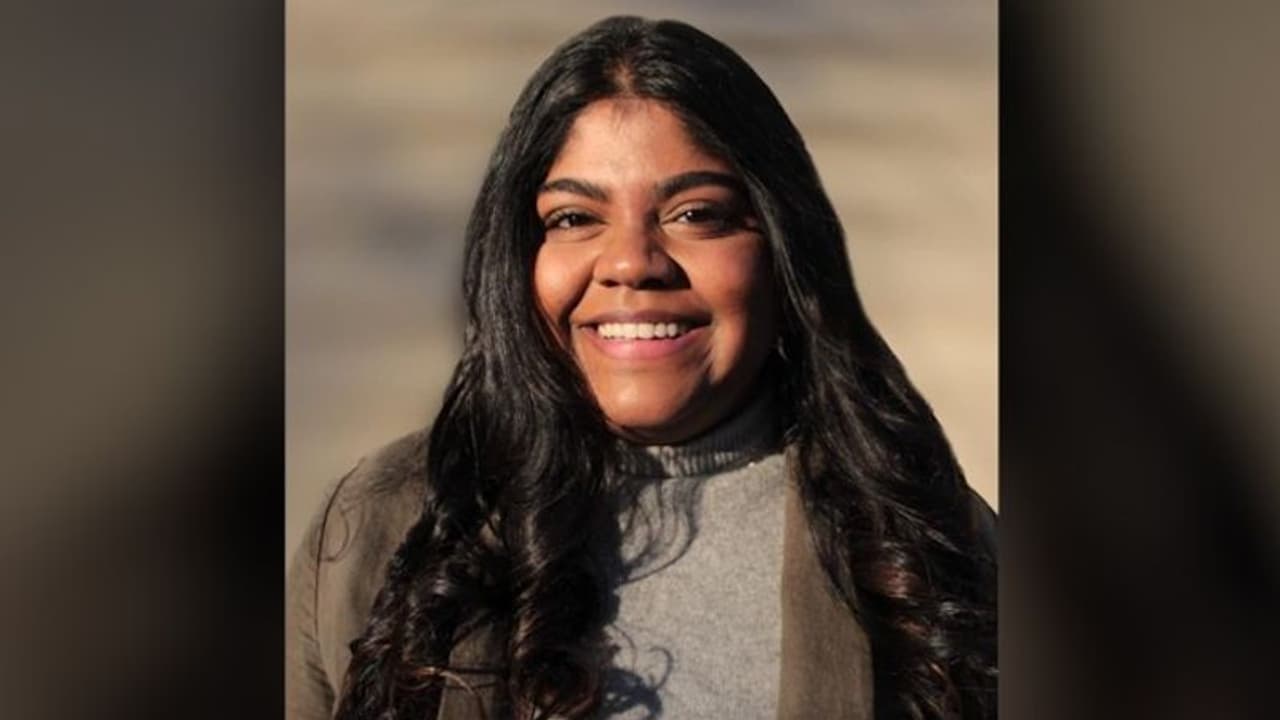An Indian-origin woman enrolled at the esteemed Princeton University is one of two students arrested amid pro-Palestine protests on campus, as reported by student and alumni publications.
An Indian-origin woman enrolled at the esteemed Princeton University is one of two students arrested amid pro-Palestine protests on campus, as reported by student and alumni publications. Achinthya Sivalingan, hailing from Tamil Nadu, and Hassan Sayed were apprehended following the erection of tents for an encampment in a university courtyard early Thursday morning, according to the Princeton Alumni Weekly.

The two graduate students were arrested for trespassing and have been "immediately barred from the campus", said Jennifer Morrill, a university spokesperson. They also face disciplinary action. The spokesperson added that the students were arrested "after repeated warnings from the Department of Public Safety to cease the activity and leave the area."
Sivalingam is a student of Masters in Public Affairs in International Development at Princeton, while Sayed is said to be a fifth year PhD candidate in economics there.
According to Princeton University's website, Achinthya Sivalingan, born in Coimbatore, India, and raised in Columbus, Ohio, pursued her studies in world politics and economics at Ohio State University.
"She has worked on a range of policy issues in the United States and in India through civil society organizations and the legal system, politics and movement building, and private philanthropy. Most recently, Achinthya supported policy and advocacy work for the climate adaptation, agricultural development, and nutrition portfolios at the Bill and Melinda Gates Foundation," her profile on the university website read.
It further added, "Prior to her time at the foundation, Achinthya has worked on a congressional campaign in Ohio's third district and on land rights and policy in India at the Centre for Policy Research. She's interested in climate narratives and communications, especially as they relate to adaptation and development."
Around 100 undergraduate and graduate students initiated a sit-in on McCosh Courtyard in the early hours of Thursday morning, echoing a broader movement of pro-Palestinian sit-ins happening across the nation. As student organizers began setting up tents, Princeton Public Safety (PSAFE) issued its initial warning to the protesters. Subsequently, Achinthya and Hassan were arrested. Following these arrests, the students complied by folding away the tents.
Over the past week, campuses across the United States, including renowned institutions like Columbia, Yale, and New York University, have witnessed fervent demonstrations amid the ongoing war between Israel and Palestinian terrorist group Hamas in Gaza. Demonstrators demanded that universities and the US government sever ties with Israeli educational institutions and halt the supply of weapons to the Israeli military.
On Wednesday, close to 100 individuals were apprehended at the University of Southern California, with dozens more facing arrest at the University of Texas in Austin. Concurrently, over 100 people were detained and four police officers sustained injuries amidst a pro-Palestine demonstration at Emerson College in Boston.
The Biden administration has defended the provision of military hardware to Israel in the wake of last year’s brazen terror attacks by Hamas that killed 1,200 people and saw about 250 being taken hostage.
Pro-Palestine protests have swept across cities in the US, the UK, and various European countries as the death toll from the Israeli military's bombardment of the Gaza Strip surpassed 34,000 people.
Meanwhile, India emphasized the importance of maintaining a "right balance" between freedom of expression and public safety and order, echoing this sentiment as US authorities arrested hundreds during pro-Palestine protests at major universities. External Affairs Ministry spokesperson Randhir Jaiswal, in a veiled reference to criticisms of India's human rights and political situation, stated during a regular media briefing that democracies should be assessed based on their actions domestically rather than their rhetoric abroad.
